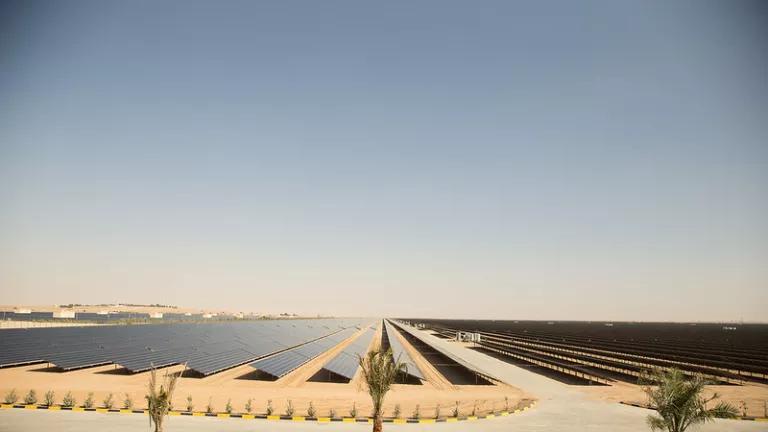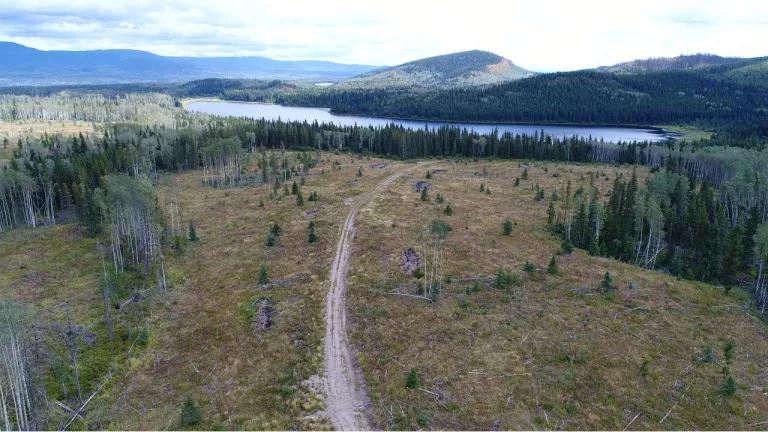
2022 Overhead of Enviva Southampton's logs for biomass in the UK and elsewhere (C) Dogwood Alliance
The Climate Change Committee (CCC) is the UK Government's official advisory body on climate change. And in recent months, they've joined the growing drumbeat of voices criticizing the Government's current approach to using bioenergy -- a false climate solution -- to meet net zero goals.
Back in January, the CCC told a committee of politicians that the UK should not rely on huge imports of biomass (the UK is the top importer of biomass in the world), due to it being incredibly risky.
Their latest annual Progress Report reaffirmed this stance by measuring the UK Government's progress on achieving net zero and finding that it's WAY off track. In doing so, the Committee looked at the UK's current bioenergy policy, as well as its projections for using Bioenergy with Carbon Capture and Storage (BECCS), making three important points:
1) The UK should stop relying on large-scale imports of biomass. The Committee stated that relying on large-scale imports of wood from other countries (the U.S., Canada, Estonia, and Latvia are all being logged for UK biomass) is NOT sustainable and, instead, the UK should increase its supply of home-grown domestic biomass. They're right--the UK's biomass are not sustainable, with wood pellets coming from clearcuts of mature and/or biodiverse forests the world over. However, the idea that the UK would be able to produce enough crops to meet its projected bioenergy needs is also totally ludicrous given the country's size and the need for land to grow food, among other factors. Given the impossibility of sourcing enough biomass -- either domestically or from abroad -- to produce the amount of bioenergy the UK anticipates, the UK should abandon this harmful energy source immediately.
2) If there's not enough sustainable biomass, the UK should scale back BECCS plans. The CCC found that if the UK can't find sufficient sustainable quantities of biomass, it should scale back its plans to install BECCS at power plants like Drax. This is incredibly important since, as noted above, there is absolutely no way for the UK to acquire the amount of sustainable biomass it needs to implement its expansive bioenergy plans either at home or abroad. Otherwise other ways to draw down carbon should be used (Direct Air Capture technology) or greater emissions cuts should be made, reducing the need for technologies like BECCS.
3) Any BECCS needs robust monitoring and verification. As mentioned above, the UK government's net zero plans rely heavily on BECCS technology--that is, drawing down carbon from the atmosphere and storing it. But this could go wrong in myriad ways. Strong rules, and a body to enforce them, will be critical, the Committee rightly says.
Nonetheless, the Committee doesn't cover all of the risks with bioenergy. Here are three things they SHOULD HAVE said:
1) Bioenergy and BECCS don't help tackle climate change. The UK Government has relied heavily on BECCS to achieve net zero. But this ignores the fact that using this technology (which doesn't even exist yet) is like trying to catch rain with a sieve: many of the greenhouse gases the bioenergy supply chain releases occur in the forest itself, long before the power station, meaning they can never be captured. Nonetheless, the Government wants to rapidly scale up BECCS, and its net zero plans don't work without it. Burning biomass - especially when it's made from trees that come straight from the forest - doesn't cut emissions; it makes climate change far worse.
2) Even using home-grown biomass is risky. Just because biomass is grown in the UK it does not mean it's automatically sustainable. The UK Government has committed to protecting 30% of its land for nature and there's growing pressure on land for food production. The amount of land needed for bioenergy in the UK to meet the Government's ambitions would be enormous, leaving little room for other critical uses. And research by 3Keel for the RSPB shows that many types of biomass harm nature, regardless of whether they are produced in the UK.
3) BECCS is incredibly expensive. Even the Government's own estimates suggest that BECCS could cost £179 per megawatt hour of energy produced, which is the same cost as new nuclear power. And it could very well be energy bill payers picking up the tab for this through an extra tax.
The Government has all the evidence it could ever need that its current bioenergy policy, and planned use of BECCS, will harm nature and the climate. Their new Biomass Strategy due out later this year can help change that. But to do that, the Government will need to wade through the greenwashing and recognize biomass for what it really is: dirty energy.



